Those of us who spend their hard-earned money on products want to ensure that they work. We assume that the products we buy won’t endanger our physical and mental health, but that’s not the case with all companies.
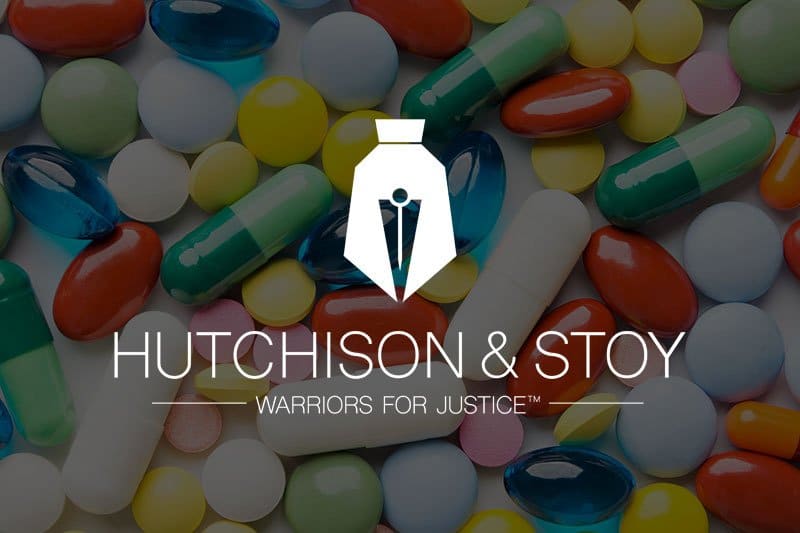
There have been countless lawsuits of products causing cancer and even killing people. Luckily the legal system has a process in place to hold negligent companies responsible for product liability.
What is Product Liability?
The United States has federal agencies in place to ensure all products a consumer buys have been thoroughly checked. The agencies and the company guarantee the product will not put anyone’s physical, mental, or environmental health in jeopardy.
Unfortunately, defective and dangerous products slip through the bureaucratic cracks and injure thousands a year.
In such cases, the company who produced their products are responsible for the harm done to another person. The type of legal process this describes is called “product liability law†in the United States.
Product liability law details the set of legal rules describing who is responsible for dangerous and defective products. The type of lawyers that deal with them is product liability attorneys or defective product lawyers.
You might think that sounds like a typical injury law.
What’s the difference between a product causing cancer and, say, radioactive waste generating diseases? The result is still harm done to another person’s body.
However, legal measures beg to differ.
Product liability law makes it easier for a person injured from a company’s item to get compensated for their damages. The flip side of this is correct — that with product liability laws, it’s easier for legal action to be taken against negligent companies.
In theory, product liability laws ensure that companies don’t cut corners and put harmful products in the hands of consumers.
In a perfect world, no company would knowingly sell or market dangerous and defective products. We don’t live in that world, which is why the Stoy Law Group legal group is here.
It’s product injury attorneys like us who hold companies responsible for their uncaring or greedy behavior that put real people at risk for cancer, physical injuries, and death. When a customer purchases a product, they expect the product not to hurt them.
Therefore, any product that harms a customer breaks that law and makes it susceptible to product liability law.
However, to make one point clear, there is no product liability law in the federal legal system. Instead, product liability laws are based on state legislation and are brought up in conjunction with negligence, breach of warranty, and strict liability.
Negligence is when someone can prove that another person intentionally knew of or enacted one of the following: failing to properly perform a legal duty, causing a plaintiff’s injury, harming someone (even unintentionally).
It’s hard for a company to claim that they didn’t know their product wouldn’t hurt someone when it’s supposed to have been thoroughly tested to ensure no harm is done to the consumer.
Breach of Warranty. When a customer buys, say, a spoon, they expect the product to hold the liquid in the concave surface until it reaches their mouth.
If the spoon were to disintegrate in hot liquid or break apart after one meal — and the company did not tell customers that this would happen — the company technically broke their warranty. The customer expects the spoon to do one thing, but the company failed to provide that.
Therefore, breach of warranty guidelines under product liability laws ensure companies don’t make unsubstantiated promises for their customers solely to get them to buy something.
Strict liability, which involves holding a company entirely accountable for their product if it injures you.
Typically, you have to show that someone was careless if they harm you.
Showing a company was careless when creating a product is difficult because a company could cover up essential information up in a product’s creation, etc.
Thus, a company’s legal team cannot expect a consumer to prove whether a product’s seller checked adequately for defects or that the manufacturer made the product defective. A consumer also is not expected to check if each product is defective before using it — that burden is placed on the company.
Checking a product might make sense with a spoon, but it would be less so with other products like Roundup or a vape pen. A consumer can gain compensation for a defective product without showing that the company produced the defective product due to negligence.
However, products are expected to break down over time.
A mug’s handle will eventually break, and the seams between two pant legs will finally rip. However, breakage should occur long after the customer buys the products.
If a product does break down, that’s a sign that the company produced a defective product, not a product the customer intended their investment in. This is why companies have warranties to protect the customer’s purchase. Under warranty, the company must fix or replace the customer’s item for free.
The Privity of Contracts
With all the laws behind products and purchases, you might be wondering why you don’t have to sign a legal contract every time you buy an iPhone, a car, or a pair of shoes.
This is because the act of purchasing a product is like a contract that automatically initiates the warranty and your expectations as a consumer. The product must have been sold in the legal marketplace, meaning you can’t go to the product failure lawyers for the harm a drug bought on the black market caused you.
However, even if you didn’t buy a product, you can still get coverage under product liability law if that product harmed you. As long as the product was sold to someone, you’re protected.
The most tangible example of this would be if your work treats their outdoor employee rest areas with Roundup, and you slowly develop cancer as a result. Your employer bought the product, but you’re the one who got injured.
The privity of contracts means companies should make sure their product is safe for everyone, not just the person they’re getting money from.
What is Considered a Defective Product?
All products sold in the legal marketplace must be free from the following, according to a product liability attorney.
If it has one of the following, it is considered a defective product:
- Design Defects. From the beginning, a company must intend for their product to last as long as it possibly can.
The company cannot plan for a computer to break in two years when the customer’s warranty ends, and the company cannot create a notebook with metal covers that could hurt the customer’s hands. Every product must be blueprinted and designed as safely as possible.
- Manufacturing Defect. A salient example of manufacturing defects is foodborne illnesses. An ice cream company doesn’t design Salmonella into the dessert, but dirty manufacturing conditions introduce bacteria into the ice cream and make people sick.
If a product became dangerous during the manufacturing or assembly process, it legally has a manufacturing defect.
- Marketing Defects. A company cannot claim that an anti-balding product will make your nose hairs grow less thick when the product doesn’t do that. Television companies cannot claim that their product is 4K when it is 1080p. Products must also have proper safety warnings and sufficient instructions for use.
A company cannot make claims that the product does not live up to. If the company does, they’re subject to product liability due to marketing defects.
Product liability attorneys, and defective product lawyers, and product injury attorneys know the most on this subject.
What Happens When a Firm Sell Defective Products?
When a product is shown to be dangerous or ineffective, the burden of proof is in the product. The item would not have existed if the company were not negligent, according to the product failure lawyers.
Under strict liability, though, the company doesn’t have to prove that the company was negligent but that the product was defective. There are situations in which proving company negligence would be tremendous for the consumer public but challenging to do, so invoking strict liability helps the customer gain compensation faster and easier.
Whether or not a plaintiff wants to invoke product liability or strict liability changes the legal strategies product injury attorneys use to win the case.
However, product failure lawyers must also grapple with other legal challenges, such as unavoidably unsafe products.
A chainsaw that’s too dull to cut through human skin would also be ineffective at completing its intended purpose (cutting down trees). Therefore, the company must mitigate risk as much as possible, and the plaintiff must prove they did not.
Having an experienced, competent legal team is crucial for plaintiffs to win their cases. Companies are tricky and know how to find loopholes in almost any law.
An excellent legal team, like Stoy Law Group, ensure you get the results you want. We’ll ensure companies own up to their mistakes and stop hurting people with their products.
Who Can Bring A Product Liability Lawsuit?
The consumer of that product or anyone who has been hurt by that product can bring up a product liability lawsuit against a company.
Can You Sue a Company for a Defective Product?
Yes, you can. You can make the process a lot easier, though, with the help of an experienced product liability attorney.
How Stoy Law Group Help People in Product Liability Cases
Stoy Law Group have a combined 30 years of legal experience helping people get the justice they deserve. Whether it’s an injury at work, civil rights abuses, or personal injury, the Warriors for Justice at Stoy Law Group will put the companies in their place.
Unfortunately, companies knowingly sell defective products all the time. Some of them might be benign, like causing the stray knick in hand, to creating severe health issues like cancer.
What is Class Action and Mass Tort Litigation?
When a company’s product injures multiple people in similar ways, and many of those wounded people seek legal action, that circumstance is known as a “class action†lawsuit. The plaintiffs can sue the defendant as a group.
Class action lawsuits are also known as “Mass tort litigation†or “multi-district litigation.â€
Let’s say a drug promised to cure people’s depression but caused intense vomiting in users as well. Those who were harmed or hospitalized due to excessive vomiting have the grounds to pursue a class-action lawsuit against the pharmaceutical company.
A car company that produced a product with faulty brakes that caused multiple car crashes also can have mass tort litigation against them.
Usually, though, there’s a representative plaintiff, also known as a “lead plaintiff†or “named plaintiff,†who speaks for the plaintiff group for most of the time.
Class action lawsuits, versus individual trials, not only detail to the purchasing public that a product has widespread harmful implications. It holds a company more responsible for the harm they’ve caused to a group of people.
One product liability lawsuit could be an anomaly, but a class-action lawsuit could betray a company’s negligence and lack of regard for their consumers. Product liability attorneys are the key to making the leap from the first to the second.
There are numerous examples of class action lawsuits throughout the United States legal system, but we’ll describe some of the most common class-action lawsuits against companies in recent years.
Roundup Weed Killer Lawsuits
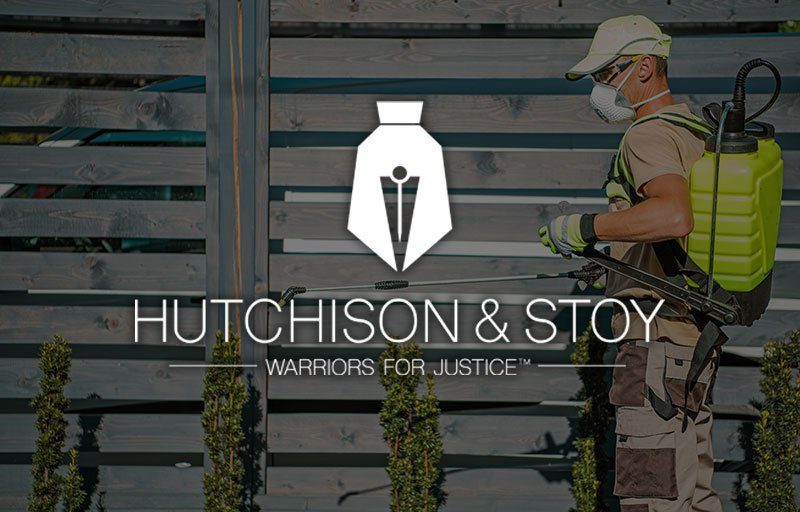
Monsanto is a chemical company that sells, among other things, weed killers on an individual consumer level. Their most famous herbicide, Roundup, has been at the center of many lawsuits and studies for its links to cancer like non-Hodgkin’s lymphoma and shortened life expectancy.
Roundup’s main ingredient is an herbicide called glyphosate. Glyphosate hinders a plant’s enzyme production. If the plant is small and herbaceous, like a weed, a user can spray glyphosate directly onto the plant and kill it. If the plant is woodier, like a small tree, the user must cut the trunks and place the glyphosate directly onto the cut to kill the plant.
Despite glyphosate supposedly only inhibiting enzyme production in plants, the World Health Organization found in 2015 that glyphosate has been shown to be a carcinogen in humans. That finding caused many countries around the world, like 28 countries in Europe, to ban the use of glyphosate to protect its consumers.
The United States, though, still allows glyphosate and Roundup to be sold around the nation, which again puts thousands of people, animals, and ecosystems at risk.
Monsanto has claimed dozens of times that glyphosate and thus Roundup is perfectly safe for consumers, even pointing to a hundred studies proving so.
However, it’s challenging to tease apart which studies have been industry-funded and which have been created by reputable, trustworthy institutions.
However, one study shows the damning results of using high quantities of Roundup — you’re 41% more likely to develop non-Hodgkin lymphoma. Granted, this is for people who consistently handle and manipulate Roundup, such as groundskeepers, gardeners, and landscapers. The results are harder to apply to those who occasionally walk on a Roundup-treated lawn.
One thing is clear, though. Roundup is dangerous to those who use it in high quantities, which was not the intent of the purchaser. This fact warranted all Roundup weed killer lawsuits.
Because lots of people claimed to have developed cancer after using Monsanto — 18,700 to be exact. One plaintiff even received $78.5 million for the damages incurred because of the company’s negligence. And because the United States continues to allow the sale of Roundup around the country, more Roundup weed killer lawsuits are likely to follow.
Review our dedicated Roundup Lawsuit page to learn more about the lawsuit and how Stoy Law Group can help.
JUUL Lawsuit
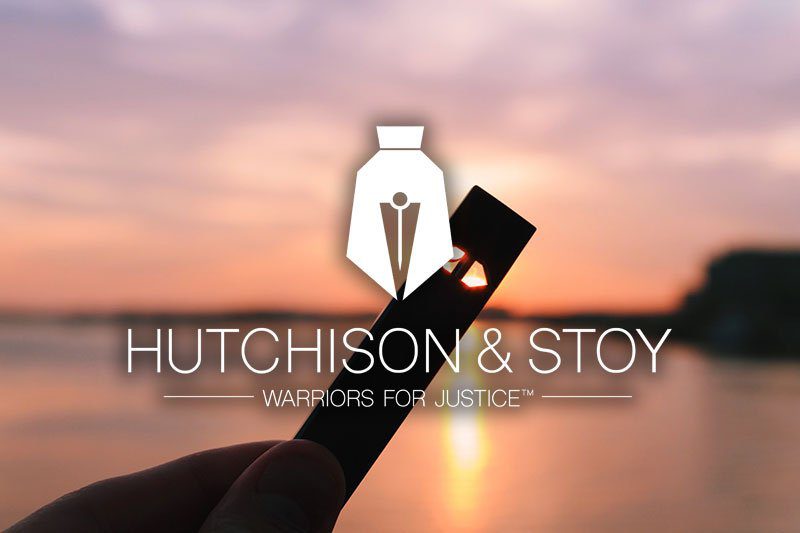
Juuling has always been dangerous because the user ingests nicotine, which has been shown time and again to be addictive, carcinogenic, and harmful for one’s health.
But people are now dying because of their vaping habits.
Vapes, also called e-cigarettes, has been marketed as a way for people to quit their smoking habit, but the opposite is exact. The handheld electronic device vaporizes nicotine liquid versus the chopped up tobacco plant in traditional cigarettes.
Due to the properties of the vaping liquid, more nicotine can be packed into a small space. Thus, people ingest more nicotine, not less, when they switch from smoking cigarettes to vaping.
Parents and other concerned people have sued vape companies like JUUL for marketing to minors and getting them addicted to nicotine, but now people are getting severe lung injuries due to e-cigarette usage.
As of October 1, 2019, the CDC reports 1,080 lung injuries because of vape products, e-cigarette usage, and other similar products in 48 U.S. states and 1 U.S. territory.
Not only that, but 18 deaths have been confirmed in 15 states because of vaping related activities.
If you or a loved one are addicted to nicotine because of the using JUUL, please review our JUUL lawsuit page and contact Stoy Law Group today.
Zantac Lawsuit
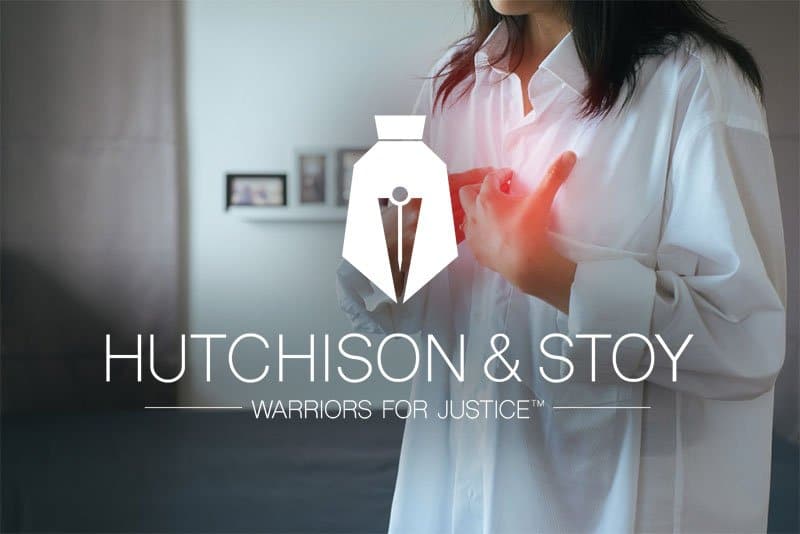
A commonly used heartburn and indigestion medications have been linked to cancer in many users, and many Zantac lawsuits have been underway since that discovered connection.
Zantac, also known as ranitidine, was first approved in 1983 to treat acid indigestion, heartburn, stomach ulcers, acid reflux, and other issues with acid production in the stomach.
Zantac is effective inhibits the H2-receptor, a process that reduces levels of stomach acid. However, the drug also has impurities and byproducts that have been linked to cancer. The carcinogens are thought to be introduced in the manufacturing process, though exact roots are still unknown.
What we do know is that in September of 2019, the FDA warned that an ingredient called N-nitrosodimethylamine (NDMA) had been thought to increase the risk of cancer in users.
The makers of Zantac surely did not mean to include a carcinogen in their product, but the intent doesn’t matter. They’re now susceptible to product liability lawsuits if someone develops cancer as a result of using their drug.
Injury and product liability attorneys are still finding new material to build their cases off of, but it’s now widely thought that Zantac facilitates these cancers:
- Stomach cancer
- Kidney cancer
- Liver cancer
- Prostate cancer
- Colorectal cancer
- Bladder cancer
- Pancreatic cancer
- Esophageal cancer
- And other diseases of the digestive tract.
If you or someone you know is a heavy user of Zantac and has developed one of the following cancers, you can pursue legal action individually or participate in a class-action lawsuit against the makers of Zantac. Many Zantac lawsuits are underway, but there’s still time to file yours.
Truvada Lawsuit
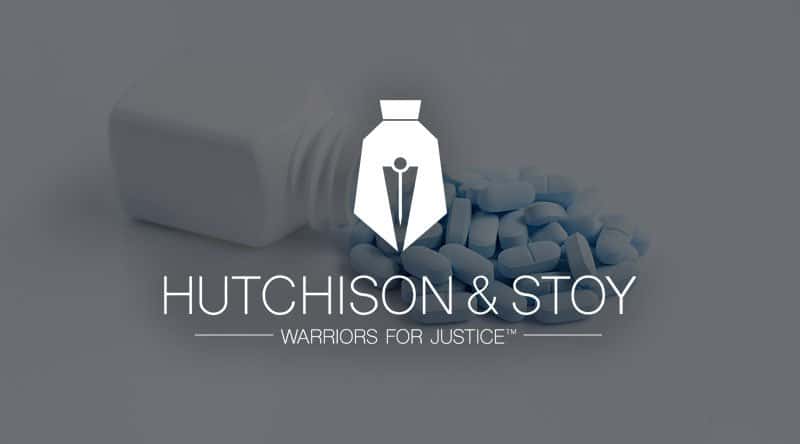
The company Gilead created Truvada, a drug that reduces an HIV-negative person’s chance of obtaining HIV. It’s like birth control for HIV — the consumer should still use safe sex practices like using a condom, but taking Truvada every day was supposed to make it more difficult for someone to become infected with HIV.
However, allegations came out against Gilead stating the company knew of the significant side effects in Truvada drug users.
The drug has been shown to cause kidney failure and bone loss density, but the company still put the drug on the market.
Kidney failure and bone demineralization could have severely impacted someone’s life, such as causing them to skip work, go to the hospital, pain and suffering, or even die as a result of using the drug. Many Truvada users have filed a class-action lawsuit against Gilead for knowing to manufacture and marketing a dangerous product.
What’s worse is that Gilead is thought to have had a safer anti-HIV drug in its midsts in the early 2000s.
However, the company halted the more reliable drug’s production in favor of pushing Truvada until Truvada’s patent expired in 2010.
According to expert defective product lawyers, the company could have avoided ten years of kidney failure, and bone density problems had they pushed the safer drug instead of Truvada.
All this information came out during the Truvada lawsuits. While the drug shouldn’t have injured people for the legal system to hold a company accountable, the Truvada lawsuits helped shed light on serious issues in the pharmaceutical industry.
If you or a loved one has used Truvada and are now experiencing health issues, contact the lawyers at Stoy Law Group today.
Were You Harmed by One of These Products?
You could seek legal compensation for your injuries if you used Roundup, JUUL, 3M earplugs while serving in the military, Zantac, or Truvada.
The products you used were defective, no matter the reason why, so the company must pay back those who have suffered as a result of their product.
We at Stoy Law Group — the Warriors of Justice — have the legal expertise to ensure you get the payment you deserve.
No Truvada-induced broken bone or 3M-caused tinnitus will be ignored.
Our legal team has 30 years of experience dealing with negligent companies who don’t have their consumers’ best interests at heart. Whether it’s the infamous Monsanto or perhaps ignorant vaping companies, no manufacturer can hurt the public and get away with it.
If you’ve been injured using one of the mentioned products, you should give us a call immediately. You can speak to an attorney today by calling (817) 820-0100.
Time is of the essence when it comes to health-related issues due to a company’s negligence.
The statute of limitations shrinks by the day, and we know it already takes a tremendous amount of time to see health issues arise and then track their causes.
Don’t hesitate to contact us, even if you think your health problem is minor. We provide 100% free, fast, and confidential consultations so you can quickly see if you can seek legal action against one of these negligent companies.
The Warriors for Justice at Stoy Law Group know that the legal system favors the greedy, negligent companies who put dangerous and defective products on the market. Our team will make sure that every injured person gets their rightful compensation.













